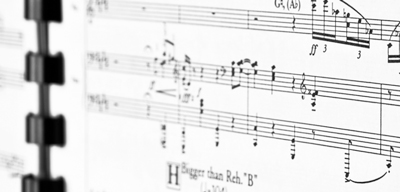by April Sun

Among the nation’s oldest organizations for contemporary music, CCG presented a diverse yet cohesive recital of eight local composers’ solo and chamber works — ranging from Jeffrey Mumford’s colorful piano solo four dances for Boris, to Larry Baker’s mesmerizing, raga-like Burn Green for marimba trio.
Pairs of similarly scored pieces provided a wide spectrum of parallels and contrasts: for example, dance was seen from two vantage points. Kevin Wilson’s Dance Suite for piano featured grooves and jazz-modes idiomatic to Brazilian music, whereas Mumford’s four dances evoked more abstract images with its sharp gestures punctuating transparent swaths of sound (think Martha Graham’s jagged movements under cloth veils) — especially under the fingertips of pianist Shuai Wang, who performed with characterful rhythmic conviction. Wilson’s piece seemed motivated by tapping feet, Mumford’s by pulsating hips.
The recital was also an aural gallery of works for brass, woodwinds, and their “fusion” (the marimba combines woodblocks with metal pipes). Among these were Nicholas Puin’s One or the Other for trombone and piano, and Joseph Hollings’s Standing on the Bank of the River Pant for solo French horn, both featuring miraculous players. Paul Ferguson (trombone) and Eric Charnofsky (piano) brought verve and finesse to Puin’s energetic “rhythm-rondo” of shifting meters and styles. In the Hollings, Greg Hillis (horn) demonstrated such impressive technical control that the instrument seemed to be engaged in an internal dialogue between explicit, spoken sounds and muted afterthoughts.
A bright point in the concert was a stunning performance by saxophonist Jeffrey Heisler and pianist I-Chen Yeh of Frank Wiley’s Portals of Light, a piece “about light streaming through portals either natural…or human-made.” Heisler and Yeh lit the stage with their beautifully balanced sonorities. Their instruments broke out of traditional and material molds. Yeh’s piano became flute-like in windy passages while Heisler’s saxophone turned percussive with ferocious slap-tonguing. The duo played with the incisiveness of lasers, but they also created hazy, glowing atmospheres. This was especially true in Heisler’s use of multiphonics, which suggested the humming frequencies of fluorescent lamps. Imaginative and technically boundless musicians, Yeh and Heisler transported their audience through Wiley’s luminous music.
Also notable were Robert Beckstrom’s vibrant Phoneum III for flute and piano and Loris Chobanian’s Sparks, a dynamic sinfonia for marimba and piano, richly textured with chattering “bird calls,” bubbly “sea waves,” and bass ostinatos. Both scores have the potential to glisten in their brilliant Klimtian intricacy. However, Sunday’s performances lacked battery power (or caffeine) and the sort of wide-eyed alertness necessary to communicate the spirit within each microscopic nuance.
As art critic John Russell wrote: “When art is made new, we are made new with it.” Sunday’s CCG concert gave its audience a renewing and stimulating collection of soundworks that spoke in the pertinent musical language of their time. Eager ears can find a listing of the guild’s upcoming performances here.
Published on ClevelandClassical.com October 19, 2015.
Click here for a printable copy of this article




